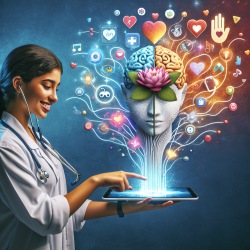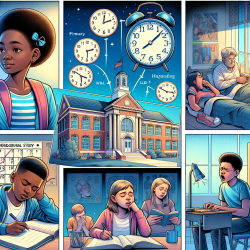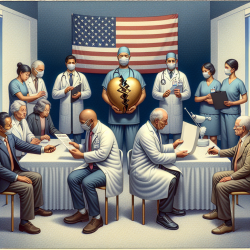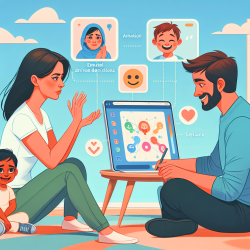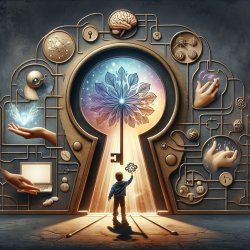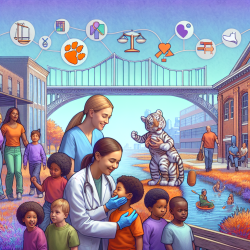Introduction
In the fast-paced world of medical education, students often face a myriad of stressors that can significantly impact their mental health. Recent research, "Digital mental health literacy -program for the first-year medical students’ wellbeing: a one group quasi-experimental study," highlights a promising intervention aimed at improving mental health literacy (MHL) and wellbeing among first-year medical students. This blog explores how practitioners can leverage these findings to enhance their skills and improve student outcomes.
The Digital Transitions Program: A Game-Changer
The study focused on a digital Transitions program, which was seamlessly integrated into the curriculum for first-year medical students at the University of Turku, Finland. This program combined life skills, stress management, and mindfulness activities, delivered through a series of lectures and online materials. The results were compelling: improved mental health knowledge, reduced emotional symptoms, and enhanced attitudes towards help-seeking.
Key Findings
- Significant improvement in mental health knowledge (-1.6, 95% CI -1.9 to -1.3, P<.001).
- Alleviation of emotional symptoms immediately after the program (0.5, 95% CI 0.0 to 1.1, P=.040).
- Reduced stress levels (P=.022) and improved help-seeking attitudes (P<.001).
However, it is noteworthy that while the improvements in knowledge and emotional symptoms were sustained at a two-month follow-up, the changes in stress levels and help-seeking attitudes were not.
Implications for Practitioners
For practitioners working in educational settings, this study underscores the importance of integrating digital mental health literacy programs into curricula. Here’s how you can apply these findings:
- Adopt Digital Interventions: Incorporate digital mental health programs that include mindfulness and stress management techniques to support students’ mental health.
- Focus on Long-term Engagement: Develop strategies to maintain improvements in stress levels and help-seeking attitudes over time.
- Encourage Help-Seeking Behavior: Foster an environment where students feel comfortable seeking help for mental health issues.
Encouraging Further Research
While the findings are promising, further research is needed to explore the long-term impact of digital mental health programs and how they can be adapted for different student populations. Practitioners are encouraged to participate in or initiate studies that examine the scalability and adaptability of such interventions across various educational contexts.
Conclusion
The digital Transitions program represents a significant step forward in addressing the mental health needs of medical students. By integrating such programs into curricula, educational institutions can play a crucial role in promoting student wellbeing. For practitioners, this study offers valuable insights into effective mental health interventions.
To read the original research paper, please follow this link: Digital mental health literacy -program for the first-year medical students’ wellbeing: a one group quasi-experimental study.
